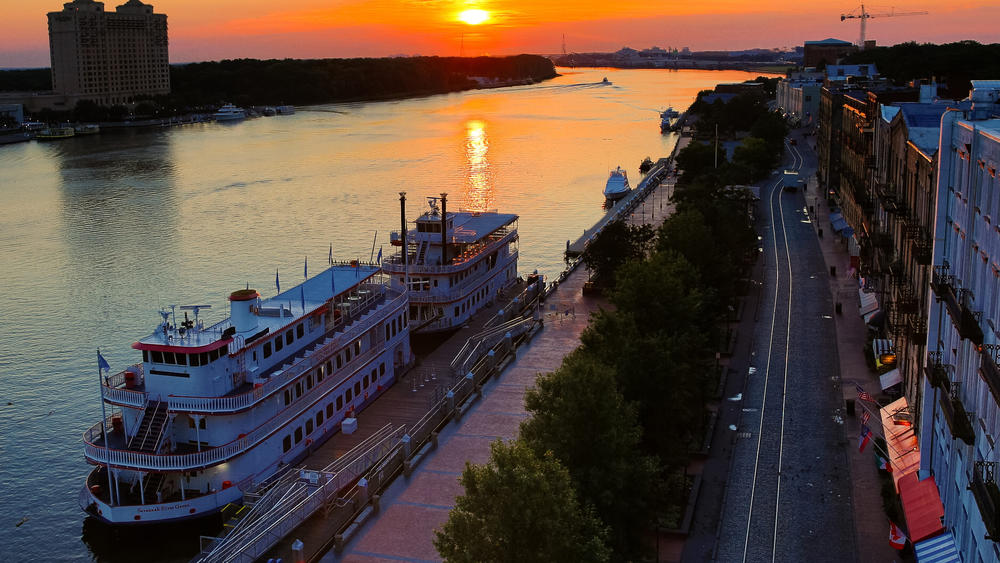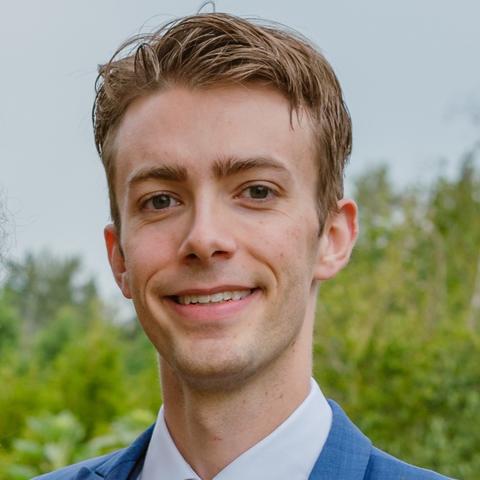
Section Branding
Header Content
Savannah nightlife study lays out plan for ‘safe, vibrant and well managed’ leisure offerings
Primary Content
LISTEN: The Responsible Hospitality Institute compiled a list of ideas for improving nightlife in the tourist-heavy city. GPB's Benjamin Payne reports.

A hospitality consulting firm has made 24 recommendations to Savannah leaders on how to improve the tourist-heavy city's bustling — and sometimes boisterous — nightlife scene.
The California-based Responsible Hospitality Institute on Thursday presented findings from its Sociable City Plan, which it compiled after a six-month study in 2022 consisting of site visits and focus group discussions with local businesses and residents.
The nonprofit wrote that its most important recommendation is for Savannah to establish an Office of Nightlife to serve as a liaison between nightlife venue operators and the city government.
Savannah already maintains an Office of Special Events, Film and Tourism, which assisted with the study. The report did not specify how the two departments might collaborate or work to avoid redundancies.
The city, which paid $80,000 for the report, is not obligated to adopt any of RHI's recommendations — some of which may require the approval of City Council, such as the report's call for a dedicated nightlife police unit.
At a Thursday presentation hosted by the city and RHI, Savannah Alderwoman Kesha Gibson-Carter thanked the firm for its work, but said that such a police unit — without additional hiring — would be overly taxing on an already short-staffed department.
“Unless and until we can really get our [police] force to where it should be — based on not only the Savannah population, but our student population as well as the tourists and visitors here to Savannah — we will not solve this problem,” Gibson-Carter said, referring to crime associated with nightlife.
Here are some of RHI's other recommendations, including excerpts from its report:
Develop an accreditation process for server training programs
“Servers play a critical role in prevention of underage access to alcohol and intoxication of on-premise alcohol consumers. Investment in confirming minimum educational standards are met will create safer environments for social venues and potentially help reduce harm in the public realm.”
Create a sexual violence prevention program for social venues
“Venue safety stakeholders can adopt and customize a sexual violence prevention campaign by reviewing existing options implemented worldwide. Staff training on how to identify potential signs of predatory behavior and procedures for how to intervene, coupled with social marketing and education of the public, will facilitate a safer environment for all to socialize, especially women and members of the LGBTQ+ community.”
Create nighttime recreational opportunities for youth
“Youth (under 21) are too young to enter licensed premises, but they too deserve access to age-appropriate social options. Featuring guest speakers who are influencers in film, sports, and gaming, as well as dance-a-thons, movie nights, etc. are ideas for evening recreation…Investing in this population — especially youth of color from neighborhoods with limited resources — will pay dividends for the future of the city of Savannah and add another layer of safety to the social economy.”
Address Impacts from STVRs
“Dedicated staffing and nighttime enforcement by the Code Compliance department is needed to curb impacts from short-term vacation rentals (STVRs) to residents, including disorderly parties, sound disturbances, and parking from multiple cars. Applying lessons learned from other cities will be critical to ensure a higher quality of life for residents.”
Create a rideshare hub for closing time pick-up
“Designating locations for rideshare pick-up can help ensure orderly dispersal at closing time. Goals also include improving pedestrian safety and reductions in traffic congestion and impaired driving.”
Although the study focused primarily on downtown venues, RHI also met with representatives from six neighborhoods in the city center and west side.

